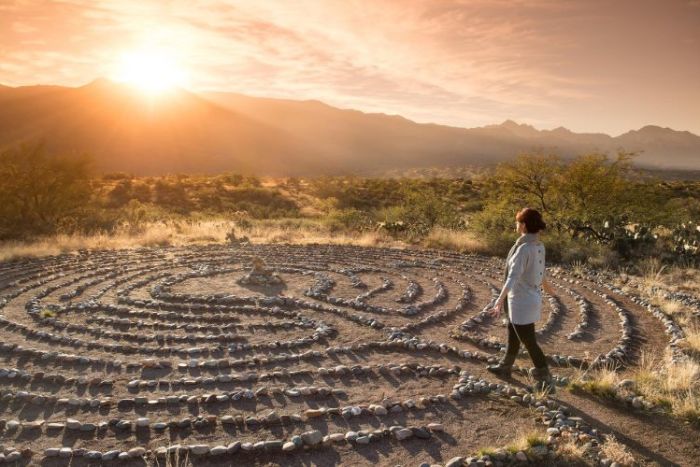Healing from addiction can be a spiritual experience. For some people, the Bible is an important resource during this process. If Christian principles resonate with you, there are many ways to incorporate them into your recovery journey.
Biblical Concepts and Teachings Related to Addiction
Some scholars call addiction a “crisis of faith.”1 Drug or alcohol addiction changes your priorities. You might lose track of what you once cared about, putting your addiction before other parts of your life. Christian teachings can help you reframe your values.
The Bible frequently refers to the duality of good and evil.2 Spiritual warfare is the ongoing battle between these forces. If you have an addiction, it might feel like that fight is taking place within your mind and body.
Some Christians compare drug cravings to spiritual temptation.3 Whether or not you believe doing drugs is a sin, addiction can certainly cause harm. Treatment gives you coping strategies to manage your cravings, knowing they might never go away. If you see recovery as a battle against temptation, you can arm yourself for that battle with the skills you learn in therapy.
Examples of Addiction in the Bible
Certain Biblical passages offer valuable insight into addiction.
The Prodigal Son
In the parable of the prodigal son,4 a son leaves home and squanders his father’s wealth. Facing poverty and starvation, he returns home to ask for help. Despite his mistakes, his father welcomes him home with open arms.
This passage teaches that asking for and offering forgiveness is essential to Christianity.5 To heal from addiction, you first need to admit that you need help. For many people, this means attending rehab or joining a support group. It can also mean learning how to heal yourself. Either way, setting an intention to recover is usually the first step.
Samson and Delilah
The story of Samson and Delilah also sheds light on the nuances of recovery. Some modern-day interpretations say Samson had a sex addiction.6 He put his love affairs before his well-being. Ultimately, he surrendered all his power to Delilah by telling her the source of his strength—symbolically giving in to his addiction.
When Delilah cuts Samson’s hair, he becomes powerless. But the story doesn’t end there. While he’s in prison, his hair continues to grow. Even when it seems like all hope is lost, he naturally makes progress toward freedom.
In the same way, the process of addiction recovery can surprise you. Healing is nonlinear, and it requires great courage. For some people, spiritual teachings are a source of strength.
Encouragement and Hope for Those Struggling With Addiction
According to one study, “religion and spirituality can play a powerful role in the prevention and treatment of substance abuse7 and the maintenance of sobriety.” There are several factors at play here.
The Value of Prayer
No matter where you are or what you’re doing, you can express your faith through prayer. That could mean anything from speaking aloud to a higher power to silently focusing your energy. You can pray alone, with a religious mentor, or in a larger spiritual community. This practice is constantly accessible.
Prayer has more than spiritual value. It also affects your brain chemistry.8 Data shows that silent prayer activates your reward system. Because addiction damages your reward system,9 the act of praying can make it easier to heal.
Healing Through Fellowship
Community is a vital part of addiction recovery. One study found that people in faith-based communities are less likely to abuse substances.10 These communities offer fellowship, emotional support, and accountability.
Many Christian communities are open to members. You can easily find a church or a Bible study group in your area. You might also consider joining a 12-Step group like Alcoholics Anonymous (A.A.). While this fellowship draws inspiration from Christianity, 12-Step groups welcome people of every faith.
Biblical Principles for Recovery and Healing
Dr. Harry Schaumburg, a Christian counselor, writes that “recovery is not repentance,11 and repentance is not recovery.” However, these ideas are deeply connected.
Repentance occurs when you admit you have an addiction, turn to God, and sincerely ask for help. This might also be the moment when you quit drinking or using drugs. But healing isn’t always that simple. It could take you longer to act on your newfound faith.
As Schaumburg says, “Heart change brings high motivation for behavior change.” In other words, repentance paves the way for recovery. At this point, you might go to rehab, seek spiritual guidance, attend therapy, or more. These practices can help you reconnect with your higher spiritual purpose.
Addressing Common Misconceptions and Criticisms
Spirituality can guide you toward a better life, but it’s just one aspect of recovery. For example, physical dependence on a drug sometimes requires medical intervention. Faith-based approaches can’t replace other types of care.
Faith-based recovery isn’t for everyone. If spiritual ideals don’t resonate with you, this approach might not be a good fit. But if you take comfort in religion, Christian rehab can be highly effective.12 Data shows this type of treatment helps people maintain both their ongoing sobriety and a long-term connection to faith. Learn more about faith-based rehab to decide if it’s right for you.
Resources and Tools for Integrating Faith and Recovery
There are several ways to integrate Christian principles into your recovery journey.
Support Groups
- 12-Step groups offer spiritual fellowship to people of all religious backgrounds.
- Celebrate Recovery is a group for Christians recovering from addiction, mental health issues, loss, and more.
- Life Recovery follows a 12-Step program like that of Alcoholics Anonymous. Unlike other 12-Step groups, these meetings have a strong focus on Christianity.
Books
- The Heart of Addiction: A Biblical Perspective, by Mark E. Shaw
- Denial Ain’t the Answer to My Problems, by Rev. Herbert Williams, Jr.
- Freedom Starts Today: Overcoming Struggles and Addictions One Day at a Time, by John Elmore
You can also incorporate religious ideals into residential treatment. Connect with a Christian rehab program to learn how.
Frequently Asked Questions About What the Bible Says About Addiction
What biblical teachings can help people struggling with addiction?
The Bible offers insights into addiction, emphasizing the importance of faith, repentance, and forgiveness. It addresses the duality of good and evil and provides guidance on spiritual warfare. By reframing values and viewing recovery as a battle against temptation, Christians in recovery can find strength and healing in biblical teachings.
How can prayer and fellowship contribute to addiction recovery?
Prayer not only provides a constant practice that allows people to connect with their higher power, but also positively impacts the brain’s natural healing processes. Fellowship within faith-based communities provides emotional support, accountability, and a sense of belonging. Prayer and fellowship, as emphasized in the Bible, can play a powerful role in maintaining sobriety.
Is faith-based recovery suitable for everyone?
While faith-based approaches can be highly effective for those who resonate with spiritual ideals, they can’t replace other types of care, such as medical interventions for physical dependence. Faith-based recovery aligns with Christian principles and can help patients maintain long-term sobriety and a connection to faith. Consider your personal beliefs and preferences to see if this approach is right for your recovery journey.










